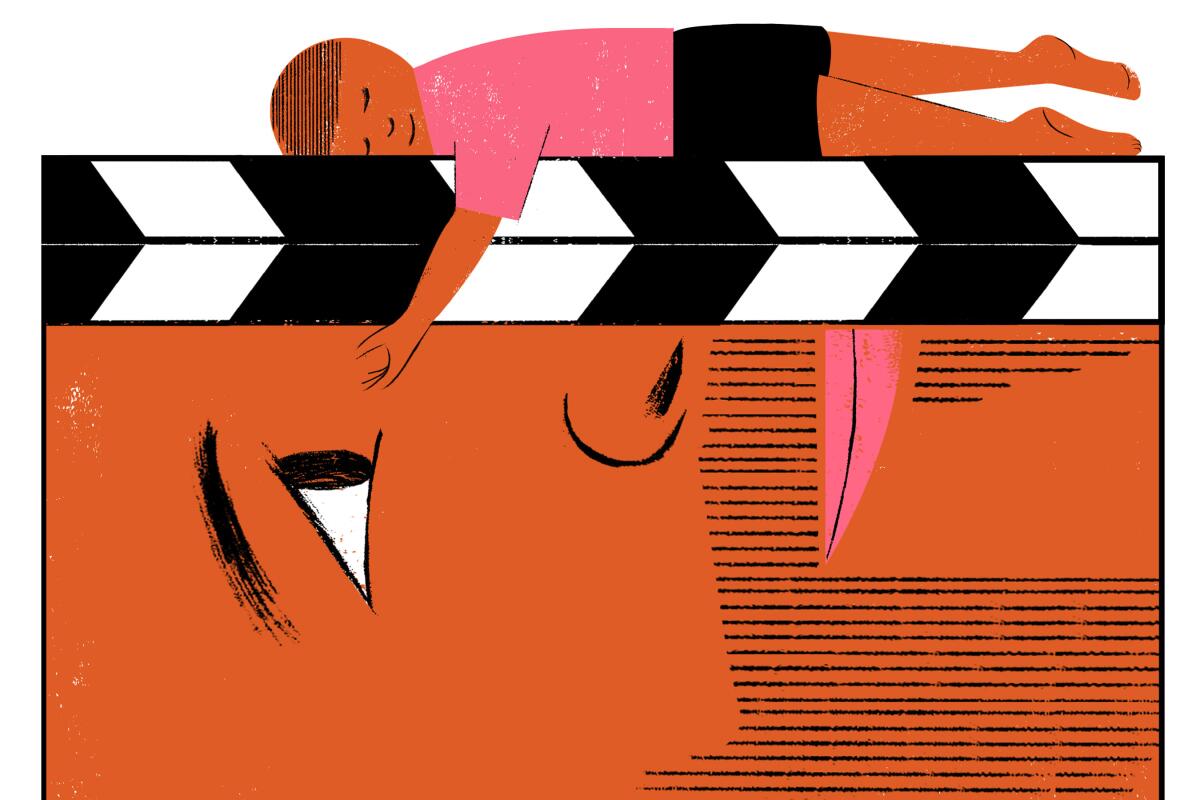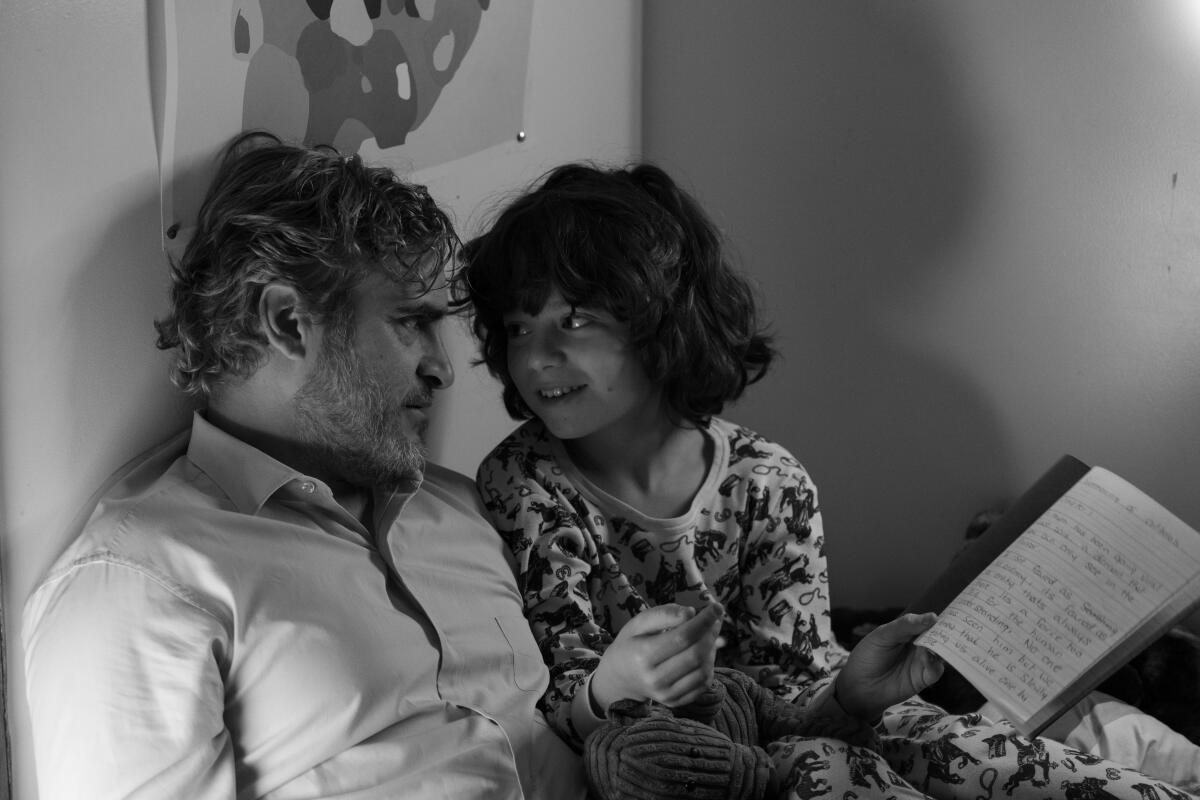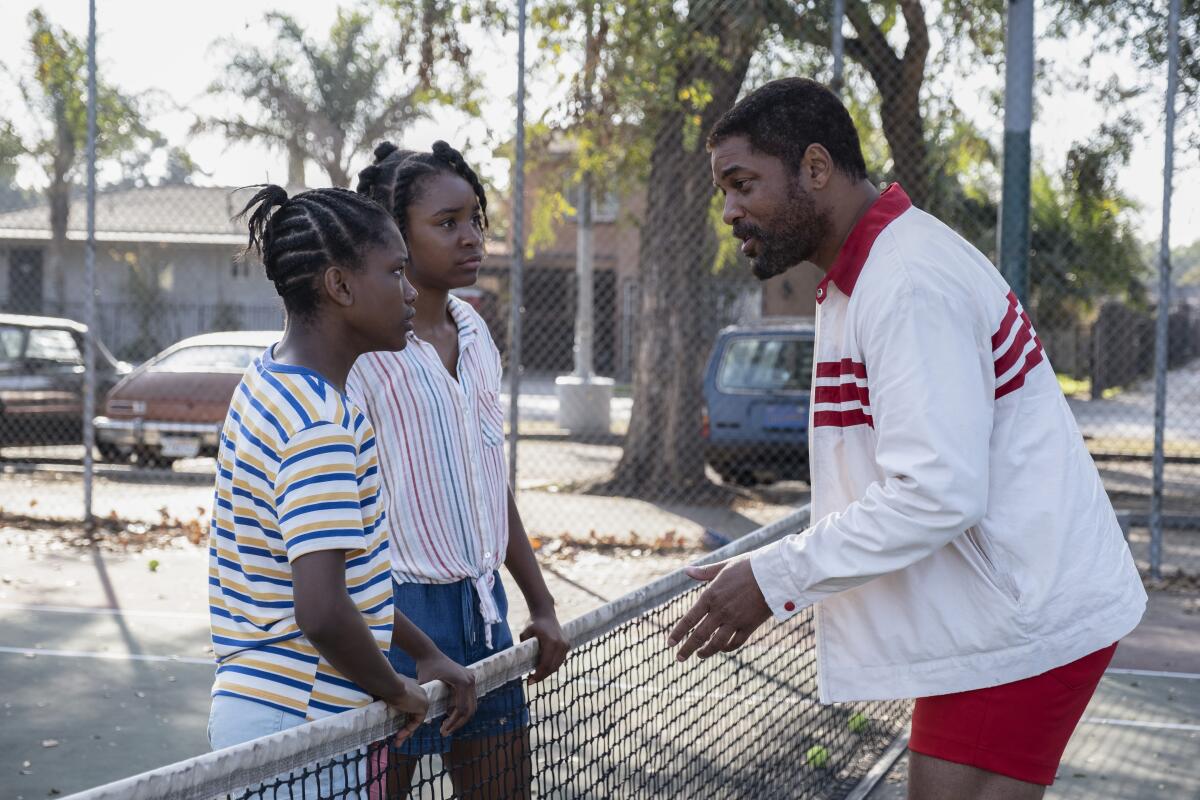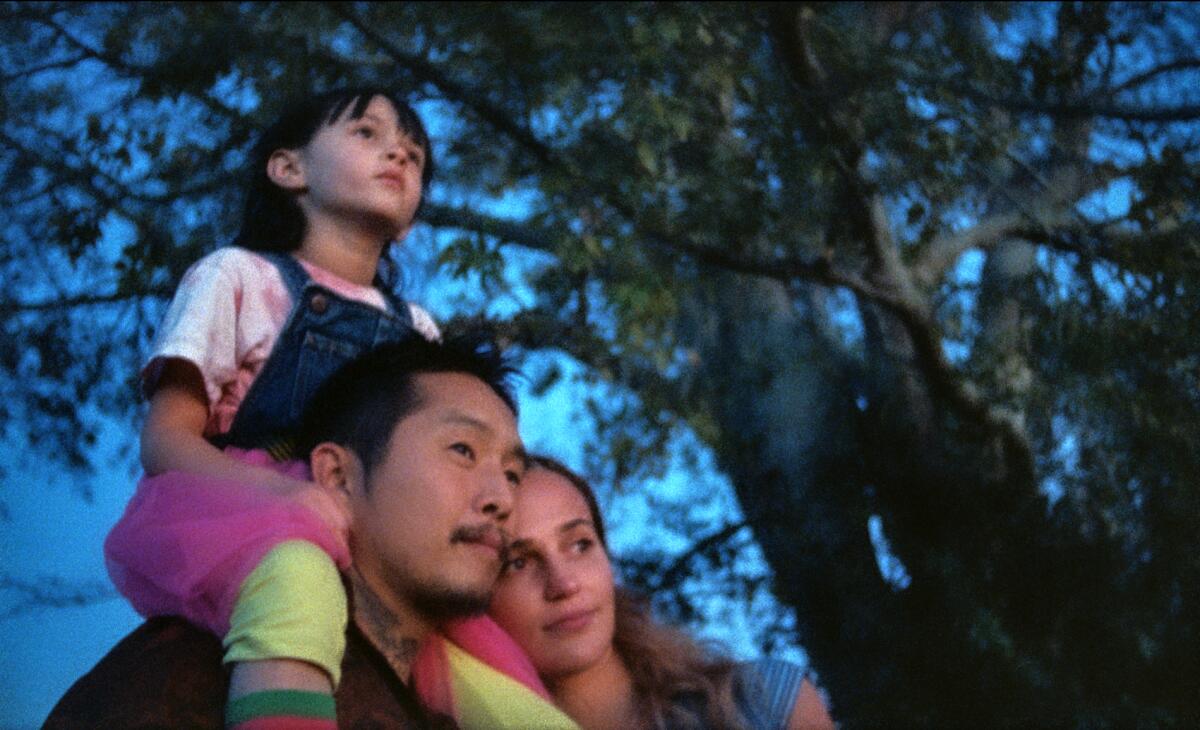Dads and father figures are stepping up in new ways in this season’s movies

- Share via
Mothers are the greatest. Not just in real life — but they’re also pretty solid as Oscar bait. A film featuring the tearful reunion or loss between a mother and her child will get audiences’ waterworks flowing, and the award season buzz stirring.
Dads, on the other hand, are often a different story. They don’t usually get center stage — but this year, things are looking a little different.
“Film fathers seem to always be there to pass on some male ritual of ‘this is what it means to be a father,’ or is a dopey dad who doesn’t know what he’s doing and is bumbling along,” suggests writer-director Siân Heder, whose “CODA” features a father (Troy Kotsur) of a different stripe: one who’s navigating not just his daughter leaving home, but becoming independent in a hearing world while the rest of her family is deaf.
Mike Mills, director of “C’mon, C’mon,” sighs in agreement. “I’m really tired of men who are dumb. Men who have never been to therapy. Or are an ugly guy with a beautiful woman,” he says — and in his film, Joaquin Phoenix’s Johnny is nothing like that: He’s an uncle and a substitute father figure to his nephew, and while there is some bumbling going on, it’s because he’s not a dad himself, much less a dad to a precocious kid who’s become his charge.

This season, films like “C’mon” and “CODA” are not alone: While mothers are often present or active in several films rolling out for awards contention, a surprising number have turned their spotlights on the relationship a father or male parent figure has with children. This can be tragic (“Mass”), inspirational (“King Richard”), heartrending (“Blue Bayou,” “Encounter”), a learning experience (“Stillwater”) or a more traditional breaking away (“House of Gucci”), but in all of these instances, the role of the father or father figure is not coloring in the same old lines.
“We’re in an exciting moment where we want to see unconventional stories about women and men on screen,” suggests writer-director Michael Pearce, whose “Encounter” finds an unbalanced but devoted father (Riz Ahmed) trying to save his children from a suspected infestation. “We want fresh portrayals. The square-jawed hero savior archetype who never cries, or who morally always knows what to do, doesn’t have the texture of real life.”
Sometimes, this is literally about the blood parent to a child: “King Richard’s” title father (Will Smith) is trying to shield his tennis star daughters from the world while encouraging them to become incredible players. Writer Zach Baylin says that outwardly Richard was seen as a “controversial figure,” but he discovered a relationship with Richard’s children that was “sweet and effusive and encouraging.”
For Baylin, that’s the direction films are heading for dads. “There’s a short history of dedicated emotional father figures in movies — like ‘Kramer vs. Kramer’ [in 1979] — that didn’t have to have this iron façade, but it does feel now like there’s more representation of that.”
In “Gucci,” where Rodolfo (Jeremy Irons) takes Patrizia (Lady Gaga) under his wing, it’s more of a father figure situation, but co-screenwriter (with Becky Johnston) Roberto Bentivegna says he sees his film, along with other contenders like Clint Eastwood’s “Cry Macho,” as indicative of the changes in the real world. “Everybody is questioning family roles and dynamics right now, probably more than usual, and that’s a wonderful thing.”

The pandemic might have something to do with accelerating the story shift; in real life, fathers have been taking a bigger role in the to-and-fro of family life during lockdown, and movies are catching up. “Film reflects cultural shifts as they’re happening,” says Heder. “It’s a shame that dads have been relegated to tropes, because the father-child relationship is as complex as the mother-child one.”
“I’ve never subscribed to the ‘don’t flinch when you bleed’ archetype,” says writer-director-star Justin Chon, whose “Blue Bayou” showcases the unique interracial bond between a stepfather and his stepdaughter. “The acceptable versions of us, as men, have expanded. We are allowed to be more vulnerable, loving and considerate.”
The men of writer-director Fran Kranz’s “Mass” are shown in the process of trying to break out of those exact dynamics with varying degrees of success: Both have lost their sons to a tragic school shooting, and while one keeps things bottled (Reed Birney) another struggles through a much-delayed tearful breakthrough (Jason Isaacs). But to Kranz, it’s about looking at them as an example of how not to lead the next generation.

“One thing in the movie is about how we raise young men,” he says. “That there’s some obligation in young men to be masculine. But how we define ‘masculinity’ may be wrong. In my movie, the young men aren’t seen on camera — but there’s this alienation or isolation born out of the idea that you’re ‘less than.’ Perhaps we should rethink what those roles are.”
Becoming a father helped “Stillwater” director-writer Tom McCarthy see what it was like to have an up-close relationship with a little girl, and he says that influenced how he wrote the story of a blue-collar man who tries to clear his daughter, in jail in France, of her crime.
“I’m amazed at how advanced girls are emotionally, how intuitive they are,” he says. “It’s humbling, if not terrifying as a man. In every cycle of stories or movies, we’re trying to understand dynamics, and for me it’s interesting to deconstruct it a little bit. We tend to be reductive of people, and there’s more dimensions to everyone than they’re often given credit for in stories.”
More to Read
From the Oscars to the Emmys.
Get the Envelope newsletter for exclusive awards season coverage, behind-the-scenes stories from the Envelope podcast and columnist Glenn Whipp’s must-read analysis.
You may occasionally receive promotional content from the Los Angeles Times.










